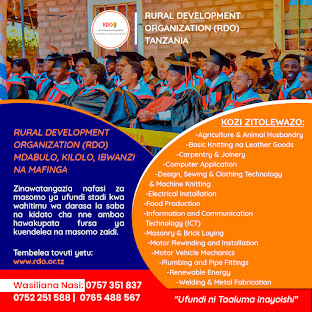Geoff Foxes on the right with his son Christopher Foxes.
By Matukio Daima media
GEOFF FOXES, a pioneer in the tourism investment sector within Ruaha National Park, stands as a symbol of the growth of tourism in Ruaha and has an indelible history.
This year, 2024, marks 60 years since the establishment of Ruaha National Park.
Many people have interacted with the park, whether through tourism, work, or investments in this sensitive sector, each contributing to its sustainability and appeal today.
One of the pioneers of investment in tourism through hotel development within this park is Geoff Foxes.
Now aged 86, Foxes recounts that during the early days of German colonial rule, a small game reserve was established west of what is now Ruaha National Park. This was called Saba River Game Reserve.
In 1959, Foxes began exploring the area, now known as Ruaha National Park. At that time, it was called the Rungwa Reserve and before that, Saba River Game Reserve.
The Minister of Natural Resources and Tourism, Ambassador Dr. Pindi Chana, presenting a Certificate of Appreciation to Nico Foxes on behalf of the Geoff Foxes family for their contribution to the development of Ruaha National Park during the celebration of Ruaha National Park's 60th anniversary.
Today, this river is known as Isaya River. Later, a large area between the Chunya/Itigi road and the Ruaha River was gazetted by the British as a wildlife reserve, known as Rungwa Game Reserve.
Foxes explains that the reserve got its name from a small village located on the Rungwa River bridge along the Itigi road.
"I frequently visited the Rungwa Reserve, where tiger fishing in the Ruaha River was a major attraction, along with the opportunity to escape the cold weather in the Mufindi tea estates, where I worked from late 1959," says Foxes.
He adds that hunting along the eastern bank of the river was also excellent.
"In late 1963, my wife Vicky and I stayed in a campsite built by an old gold prospector named Scotty, who operated the area as a tourist station near the current bridge."
Foxes recalls that the government had set up a ferry crossing made of oil drums and attached to a steel cable to cross the Ruaha River.
"One day, we drove through the park on a wildlife sightseeing trip."
They searched all day and discovered a few tin houses at Mbage on the Mwagusi River, where a game warden named Stevenson had established the headquarters of the upcoming Ruaha National Park.
The headquarters were abandoned, so they signed the guestbook and commented that they had not seen any animals.
"Stevenson later wrote to us, saying that as he was writing, there were elephants outside his house, but on that first day in the proposed park, we saw only a single rhino," Foxes reminisces.
Comparing that visit to what can be seen today highlights the remarkable work done by the dedicated park officials and staff.
"Our first son, Christopher, was born just three months after that initial visit to the park."
Foxes shares that he and his family, which eventually included three more children, enjoyed frequent visits to Ruaha National Park. Initially, they stayed at the government camp, but later camped along the river, especially at Mwayangi (now Ruaha River Lodge), where the whole family was eager to fish for tiger fish.
Foxes mentions that after Stevenson’s short tenure at Ruaha, he was succeeded by John Savage, who was tasked with assembling a team of game rangers, constructing park facilities, and developing a network of roads.
"I remember him asking me to help recruit game wardens, and I provided two of my best trackers, one of whom is still alive today," Foxes says.
Savage relocated the park’s headquarters from Mbage to Msembe, recognizing that Mbage lacked the water resources needed for a large, future headquarters.
However, the park faced severe poaching in the 1970s and 1980s, where the forest became a refuge for elephants, which eventually led to its destruction.
The original structures hidden within the forest were left exposed, followed by the development of the "small town" and airstrips we see today.
Foxes adds that Savage was succeeded by various Tanzanian leaders. In 1980, Horace Nasiri was appointed as the head of Ruaha Park under the regional head of parks, Ben Kanza.
He was briefly replaced by Charles Kibasa, who was succeeded by Ole Moirana in 1985. Moirana held the position for ten years, achieving significant milestones.
Moirana was succeeded by Mtango Mtahiko, who provided steady leadership for another decade from 1995 to 2005.
Later, the park was led by various leaders such as Hando, Qorri, Chris Timbuka, William Mwakilema, Msindai, and Godwel Mengataki.
Foxes recalls that in the early days, Tanzania's first president, the late Mwalimu Julius Kambarage Nyerere, strongly supported wildlife conservation and the establishment of national parks, although tourism as an industry did not align with his socialist principles.
"Thus, my family was the only one involved in business in Ruaha, enjoying the solitude of the vast landscapes without the crowding of tourists."
However, TANAPA (Tanzania National Parks) often lacked funds, especially during Tanzania's tough economic times.
These were the years of intense elephant and rhino poaching, and I remember Ben Kanza telling me that he couldn’t ask his rangers to risk their lives when they hadn't been paid for three months, lacked equipment, and had inferior firearms compared to the poachers.
To help address this, we founded a charity called Friends of Ruaha Society, which provided the park with ranger equipment, incentives for capturing poachers, spare parts for road-building equipment, and more.
In late 1981, we sought permission to build a tourist camp around the Mwayangi kopje.
Foxes notes that with four children born and raised in Tanzania, they needed a way to ensure they could continue living there, so they took the opportunity and believed that tourism would return.
Vicky managed all the operations since my contract with the tea company didn’t allow me to engage in other financial activities.
"Every Monday, Vicky drove 260 kilometers to Ruaha and returned to Mufindi on Friday."
She also took the children of other families and continued their schooling at Ruaha, where she taught for 27 years without pay.
Foxes recalls that in the 1980s, Vicky visited Minister George Kahama to address the issue of the ferry crossing, and they discussed a map for the idea of building a bridge, which was eventually constructed and inaugurated by Prime Minister Malecelela.
"Our family has continued to expand and develop many tourism facilities in Tanzania through Fox Safari Camps and Safari Air Link (SAL)," Foxes says.
However, he adds that his son, Bruce Foxes, has been a strong advocate for sustainable water use in the upper Ruaha catchment areas.
Bruce and his wife, Jane Fox, have been involved in promoting tourism in Southern and Western Tanzania for over 25 years and are now joined by their son, Oliver Foxes, in these efforts.
He says that all of Geoff Fox’s children have positively impacted the National Parks in Tanzania:
Chris Fox was an active member of the Friends of Ruaha Society and continues to operate Mwagusi Safari Camp, bringing many visitors to Ruaha National Park.
Peter Fox managed Ruaha River Lodge for over 20 years, at a time when tourism revenue for TANAPA was more precious than it is today. During many of those years, he flew as a volunteer for the Friends of Ruaha Society's plane to assist TANAPA with anti-poaching efforts, game counts, transporting sick rangers for treatment, and other tasks. He operated this plane on behalf of Friends of Ruaha.
Meanwhile, Alex Fox lobbied the newly elected President, Jakaya Kikwete, in 2006 to promote the Fox family idea of upgrading the reserves bordering Ruaha National Park, expanding the park to become the largest National Park in Africa at that time.
Bruce Fox and his father managed Mkwaja Ranch, a 490 square kilometer area, for 12 years and protected what was the first Private Protected Reserve in Tanzania. They were also instigators who secured funding and government commitment to combine Mkwaja Ranch, the smaller Saadani Game Reserve, and Zarininge Forest Reserve to create Saadani National Park.
For over two decades, Bruce has been a vocal advocate drawing attention to the unsustainable use of water in the catchment area upstream of Ruaha National Park after donor-supported irrigation projects diverted entire rivers for rice flood irrigation.
Together with his parents, Bruce Fox was a co-founder of the Foxes Community and Wildlife Conservation Trust, where he serves as CEO and his brother Nico Fox is the Chair.
Both Nico and Bruce hope to assist communities upstream of Ruaha in sharing water between upstream and downstream users and ensuring that the Ruaha River flows year-round in their lifetime.
Our family has led the way in developing many tourism facilities. You can visit our websites at www.foxessafaricamps.com and www.mwagusicamp.com, as well as Safari Air Link (SAL) at www.flysal.com
It is important to remember and honor the pioneers of Ruaha National Park, as they laid the foundation for wildlife and environmental conservation that contributes to the heritage of our nation.
In the 60 years since the establishment of this park, their contributions have helped preserve biodiversity, attract tourists, and boost Tanzania’s economy.
Through their dedication and vision, they have preserved natural areas for future generations and fostered a culture of respecting and protecting our natural heritage.
Every success today is rooted in their efforts.
The End



.jpg)

.jpg)



















.jpg)
0 Comments